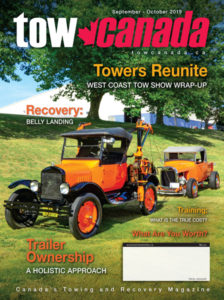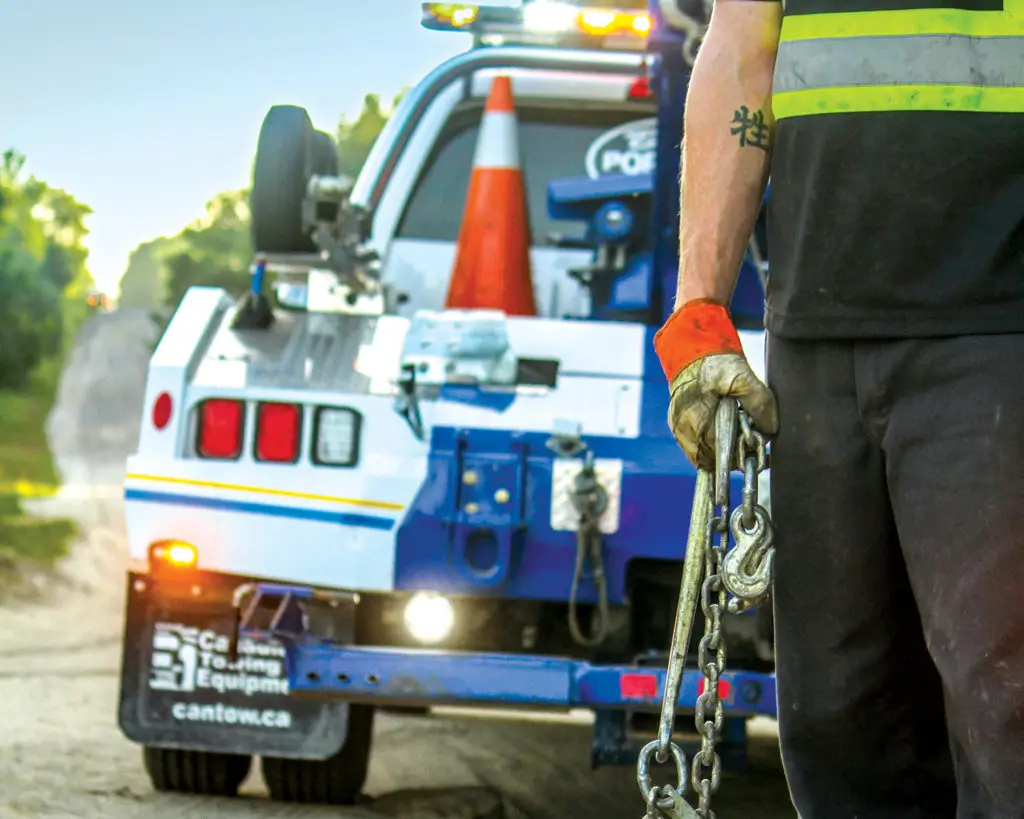For too long, tow operators have underestimated their value, but it is time to raise the standard and charge what you are worth.
By Sarah Bruce

If all the towers stopped towing today, a city would be gridlocked within 24 hours. It would run out of food, fuel, and supplies within 48 hours. By 72 hours, it would be impossible to get to a hospital in an emergency.
If the towing and recovery industry is so essential to everyday life, then why do tow operators not receive the same respect as paramedics, police officers, and firefighters?
Because they are not seen as professionals. At least, not yet.
The only way to change this perception is to raise the bar, elevate the standard, and come together as an industry to show that tow operators are not only first responders deserving respect, but also proud professionals.
At the West Coast Tow Show in July, the Automotive Retailers Association (ARA) hosted a WreckMaster Level 2/3 class, which I was able to attend. Admittedly, I am not a tower, but I have nothing but respect and admiration for tow operators and a desire to do whatever I can to help the industry.
In the time since I started writing for Tow Canada, I have learned a great deal about advocacy projects, lane blocking, and business models but little about the technical side of the industry. Rolling resistance? It meant little to me until I took the WreckMaster course. Now, suddenly, I cannot seem to drive down the road in my little VW Cabrio without calculating the rolling resistance of every vehicle I pass.
However, what is even more important than learning rolling resistance is learning why knowing this is crucial to being a tow operator. Having the proper training teaches exactly what you and your truck, tools, and equipment are capable of in every situation. You have heard it again and again, knowledge is power! If you are not interested in educating yourself for the sake of betterment, and maybe not even for the sake of safety (because apparently you like your odds despite the fact that a tow operator dies every six days on the job), then at least invest in training for the sake of your finances.
Performing a bad tow job risks your truck and your equipment, puts you in danger, and is potentially harmful to everyone you share the road with. You know all those bad tow jobs you like to make fun of on Facebook?
Well guess what, if you are seeing them, then so are your customers and this bad publicity risks the reputation of the industry. A bad reputation perpetuates the stereotype the public has about tow operators and this stereotype is what is preventing you from charging what you are worth.
Believe in yourself and your business and charge what you are worth.”
So, what are you worth?
The average profit margin in the towing industry is two percent. When you consider the costs of trucks, equipment, insurance, office space, impound lots, employee wages, etc. it is no wonder that many tow companies are just getting by. It does not have to be this way.
When you charge $50 for a tow that when properly executed should cost double, if not triple that, you are not just hurting yourself, you are hurting the entire industry. By undervaluing the service you provide, you are setting a standard for what a tow operator is worth, which sends a negative message to the public. If you do not value yourself, how can you expect your customers to value your service?
If the entire industry stopped trying to undercut one another for the sake of the job and instead invested in the proper tools, equipment, and training, then they would be justified in charging what they are worth. If everyone does this, it elevates the standard and then no longer can customers call around looking for the “best deal” because really, “cheap is no good and no good is cheap.” Do not be like this. Be better. Believe in yourself and your business and charge what you are worth.
This will not only elevate your profit margin but it will elevate the professionalism in the industry, and this benefits everyone. When you charge what you are worth, you do not have to rush the job unnecessarily, cut corners, and put yourself in danger in order to make up for the fact that you are only making $50.
The industry has to get over the mentality that you have to rush a job and cannot wait for a second truck or afford a second operator because it is just not worth it when something goes wrong. What if the vehicle or property is damaged because the operator rushes or does not have the proper equipment or the right training? Worse, what if the operator or customer is hurt or killed? Was it worth rushing? Was it worth $50? Was it worth not investing?
The industry is tough, there is no denying that, but if all towers work together instead of against one another, it will raise the standard. Stop cutting corners and invest in the right tools, the right training, and the right to get home safely every night.
